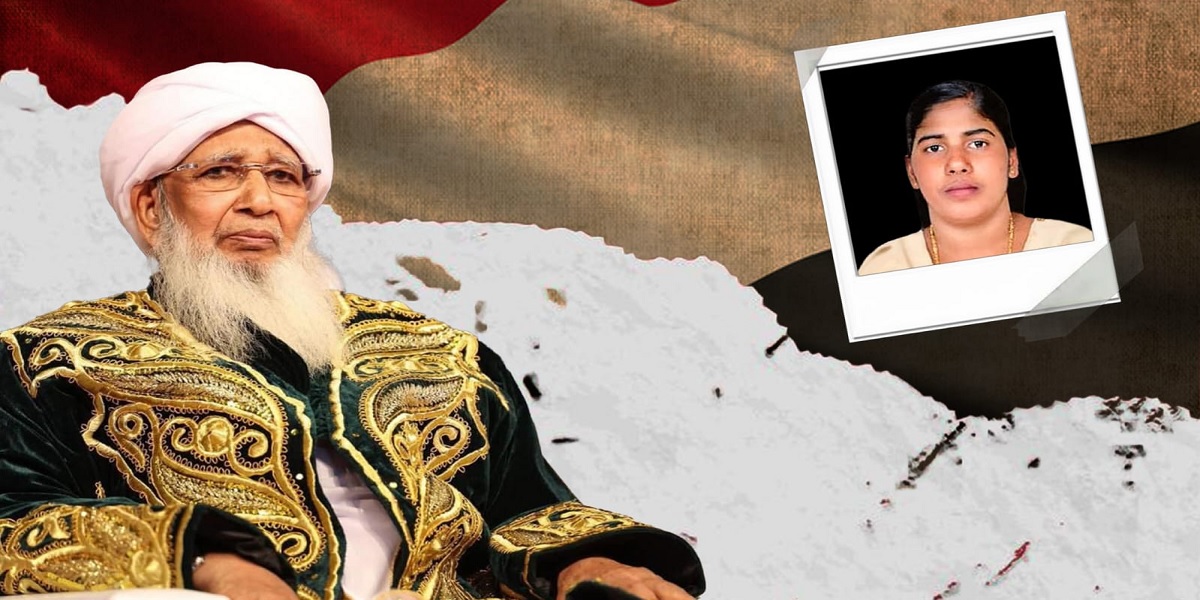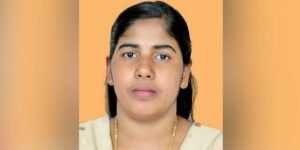Though Kanthapuram has not publicly disclosed the channels he used to help pause the execution, his silence only fuels speculation that quiet diplomacy—and respected religious connections—may be playing a critical role behind the scenes.
Published Jul 19, 2025 | 6:00 PM ⚊ Updated Jul 19, 2025 | 6:00 PM

Kanthapuram AP Aboobacker Musliyar, the Grand Mufti of India and a leading Sunni scholar based in Kanthapuram, has played a key role in delaying the execution of Malayali nurse Nimisha Priya.
Synopsis: Beyond lies and half-truths being peddled against Kerala lies the real story: A tale of a humane outlook, harmony, and willingness to transcend faith and geographic boundaries to save the life of a young mother. At the center of all efforts to save Nimisha Priya is a 91-year-old Muslim cleric, Sheikh Abubakr Ahmad, the 10th Grand Mufti of India.
Nimisha Priya is behind bars in a land torn by endless conflict—a place with no real government, only dust and despair from civil wars fought by rival tribes.
Far from her home at the picturesque Kollengode in Kerala’s Palakkad district, Priya is on death row in Yemen’s rebel-held Sana’a. The Indian embassy there was shut down long ago, after “Operation Raahat,” the emergency evacuation that pulled out citizens in 2015, as the violence worsened.
The Indian mission now operates from Djibouti. Diplomatic efforts have moved from Djibouti to the corridors of the External Affairs Ministry in New Delhi. But Priya is still not saved — and she faces an uncertain future.
In the middle of it all stands a 94-year-old Muslim cleric from Kerala—Kanthapuram AP Aboobacker Musliyar (officially, Sheikh Abubakr Ahmad), the Grand Mufti of India—trying to halt her execution.
Priya was sentenced to death for allegedly murdering a Yemeni citizen in 2017.
At a time when Kerala is painted in broad strokes by northern media as the land of so-called ‘love jihad’, here is the real Kerala story—one that goes beyond religion, and borders.
Kanthapuram AP Aboobacker Musliyar, the Grand Mufti of India and a leading Sunni scholar based in Kanthapuram, has played a key role in delaying the execution of Priya.
Though the title of Grand Mufti is unofficial, he is widely accepted as the 10th to hold it in India. A respected Islamic law expert, he is active in national and state-level scholars’ bodies and frequently travels abroad for religious engagements.
Musliyar — popularly known as Kanthapuram and Ustaad — also chairs the Markaz Knowledge City project in Kozhikode, which houses institutions including medical and law colleges. He previously made headlines for advising women not to participate in anti-CAA street protests, even though he opposed the law itself.
Kanthapuram was the first to issue a fatwa against ISIS, on 27 August 2014, before he became Grand Mufti in 2019. According to Khaleej Times, it was the first such Islamic legal opinion against the group. The fatwa, now archived in the UAE, urged the Indian Sunni Jamiyyathul Ulama to raise awareness against terrorism. He later issued further fatwas against ISIS and other extremist groups.
In Priya’s case, he reached out to Yemeni religious authorities—who are in touch with the victim Talal Abdo Mahdi’s family—to propose clemency through ”blood money,” a form of compensation recognised under Islamic law.
”Islam allows the victim’s family to pardon a murderer. I contacted scholars in Yemen and explained the situation,” he told reporters. Following his request, the Yemeni scholars agreed to intervene and have officially communicated that the execution has been postponed.
Kanthapuram has also informed the Indian central government and written to the Prime Minister’s Office regarding the development.
While the Arabian Peninsula is widely regarded as the cradle of Islam, the Hadhramaut region of Yemen holds particular significance for its deep-rooted contributions to Islamic scholarship and cultural development. Known for its historical influence, Hadhramaut remains a hub of religious learning and traditional authority.

Nimisha Priya. (Sourced)
Insiders believe that Kanthapuram has longstanding ties to this region—particularly with the Hadhramout University of Science and Technology, College of Medicine and Health Sciences. Established in 2004, the institution plays a crucial role in Yemen’s medical education, offering undergraduate and postgraduate programmes in medicine, nursing, public health, and pharmacy.
Given Kanthapuram’s prominent position in the field of education, some experts speculate that he may share intellectual and personal connections with scholars and educationists in Hadhramaut.
In a country like Yemen, where religious elders continue to hold social sway, Kanthapuram’s influence could carry significant weight. It is believed that he might be leveraging these scholarly networks to initiate dialogue with both Yemeni authorities and the family of the murder victim in the Nimisha Priya case.
Though Kanthapuram has not publicly disclosed the channels he used to help pause the execution, his silence only fuels speculation that quiet diplomacy—and respected religious connections—may be playing a critical role behind the scenes.
When South First contacted NP Chekkutty, a senior journalist based in Kerala, he shed light on the enduring influence of Kanthapuram and how he became such a powerful figure both within Kerala and across West Asia.
”Kanthapuram became a prominent figure after the split in Samastha in 1987. His prominence grew especially because he forged political ties with the CPI(M), giving the party access to the Muslim community in North Kerala—an area traditionally aligned with the Muslim League.” he said.
Chekkutty said this political realignment not only positioned Kanthapuram as a credible voice among Muslims and CPI(M) leaders but also helped him establish a wide network of institutions, particularly in North Kerala.
”He is a media empire himself,” Chekkutty added, noting that Kanthapuram also built strong connections with West Asian countries, including reputed institutions like Al-Azhar University in Cairo. His roles in Hajj committees and Waqf boards further extended his influence.
”What made him particularly important,” Chekkutty emphasised, ”was his work in reforming the marginalised sections within the Muslim community, especially in promoting professional education for Muslim girls and safeguarding business interests. That gave him credibility among the intellectual and professional classes.”
On how Kanthapuram could manage to open channels of communication with Yemeni authorities despite India having no official diplomatic presence there, Chekkutty explained, ”He’s one of the most respected Sunni scholars globally.
Al-Azhar University, considered a final voice in Sunni Islam, has close ties with him. He is also a member of the Muslim Council of Elders, a body of influential Sunni scholars and leaders spread across Africa, West Asia, Southeast Asia, and beyond. With figures like the Abu Dhabi Sheikh heading the council, Kanthapuram’s connections extend deep into the ruling and religious elite.”
But the real intrigue lies in his perceived ability to potentially influence even the Houthi leadership in Yemen, a Shia group.
When asked about this paradox, Chekkutty noted, ”Even though the Houthis are Shia, there exists an informal network of religious and political leaders that transcends sectarian lines. Institutions like Al-Azhar and figures in the UAE and Egypt have longstanding, subtle connections inside Yemen. Kanthapuram has known these networks for decades. It’s not a small thing. We never know which strings he pulled.”
The Ministry of External Affairs (MEA) has described Priya’s case as a highly sensitive matter. MEA spokesperson Randhir Jaiswal told the media that the Indian government is actively pursuing the case through diplomatic channels and has sought assistance from friendly nations.
When asked about the involvement of Kanthapuram in the postponement, he said he had no information to confirm such reports.
Meanwhile, the Save Nimisha Priya Action Council is seeking the central government’s approval to send a six-member delegation to Yemen to initiate dialogue with the victim’s family. The delegation would aim to secure forgiveness, a crucial requirement under Sharia law, before any discussions on “diya” (blood money) compensation can begin.
The Council requested the formation of a team comprising two representatives from the Action Council, two individuals associated with the ongoing negotiations led by Kanthapuram, and two officials nominated by the central government.
The proposed representatives from the Action Council include Supreme Court lawyer and legal advisor Advocate Subhash Chandran KR, and Kunhammed Koorachund, the Council’s treasurer.
Representing Kanthapuram’s team are Dr. Husain Saqafi, a globally engaged Islamic scholar, and Hamid, the grandson of Kanthapuram, who has strong connections in Yemen.
However, recent hate campaigns and cyberattacks from right-wing and extremist groups in Kerala have targeted Subhash Chandran, raising serious safety concerns about his travel to Yemen. This has led to a reconsideration of his inclusion in the delegation, although the Council remains committed to its mission.
They have clarified that those attacking or insulting Kanthapuram do not represent their cause.
This is the Kerala story of people coming together—beyond religion and borders—in a united effort to save a life.
(Edited by Majnu Babu).
